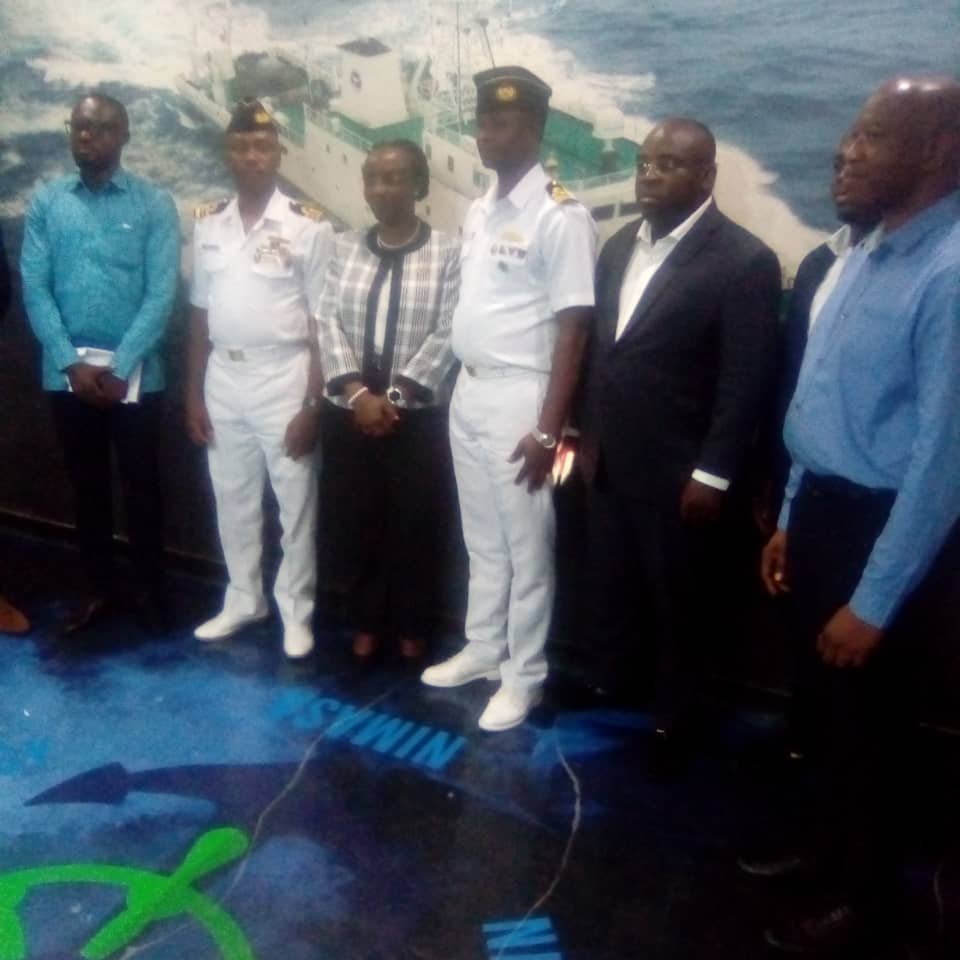 The Nigerian Maritime Administration and Safety Agency (NIMASA), has restated the agency’s commitment to the domestication of its capacity development programme to save the nation’s scarce foreign exchange needed in training young Nigerians abroad.
The Nigerian Maritime Administration and Safety Agency (NIMASA), has restated the agency’s commitment to the domestication of its capacity development programme to save the nation’s scarce foreign exchange needed in training young Nigerians abroad.
Director-General of NIMaSA, Dr Bashir Jamoh stated this during a visit of the management of Greg Ogbeifun Institute of Maritime Technology and its partners from the Training Centre for Blue Collar Port Workers in the Port of Antwerp Belgium and members of the Asia Pacific Economic Cooperation.
He also revealed that NIMASA was working on adopting a reciprocity policy for the Recognition of Certificate of Competency and other Certificates to facilitate international trade.
He urged the management of the Institute to enter into a Memorandum of Understanding (MoU) with reputable international learning Institutes to ensure that the quality of education meets internationally acceptable standards adding that as a new maritime institute, gaps identified by the International Maritime Organisation (IMO) in the latest IMSAS report should be prioritised and urgently addressed.
“NIMASA has recognised the improvement in quality of maritime training in the country and we are looking inwards in our quest to develop human capacity for the Nigerian maritime industry. We are providing the required regulations to ensure that certificates earned from Institutes in Nigeria are recognized globally.
“When we are satisfied that all requirements have been met, we will then adopt the reciprocity rule in recognition of certificates. NIMASA will not recognise the certificates issued by maritime administrations of non-friendly nations whose decision not to recognise certificates issued in Nigeria are unjustifiable,” he said.
While acknowledging the rising number of maritime training institutions in the country, which he described as a welcome development, he said: “Studies have established over 600,000 human capacity skills gap in the maritime sector.
“The need for more seafarers and dockworkers in Nigeria is obvious. Training and retraining of manpower are required for a virile maritime industry. We will do everything necessary in terms of regulation to ensure our training facilities meet international standards.”
Jamoh disclosed that the Agency has secured approval of a Fiscal incentive of zero per cent import duty on brand new vessels adding that the Agency is working on monetary incentives such as the Cabotage Vessel Financing Fund which he said NIMASA awaits further directives from the Federal Ministry of Transportation.
Speaking, Chairman of the Institute of Maritime Technology, Greg Ogbeifun, said the institute was committed to collaborating with existing institutes. He commended the NIMASA Management under Jamoh for championing efforts at securing fiscal and monetary incentives for stakeholders in the maritime industry.
“We at GOMIT are committed to attaining internationally acceptable standards in training dockworkers. Government should provide us with the enabling environment to achieve our goal. We will identify a training need assessment for pool workers. We consider certification as a key component of the training loop,” he said.
Representatives of the Port of Antwerp and officials of the Edo State Polytechnic, Usen where the institute is located were among those who attended the meeting.
 The New Experience Newspapers Online News Indepth, Analysis and More
The New Experience Newspapers Online News Indepth, Analysis and More
